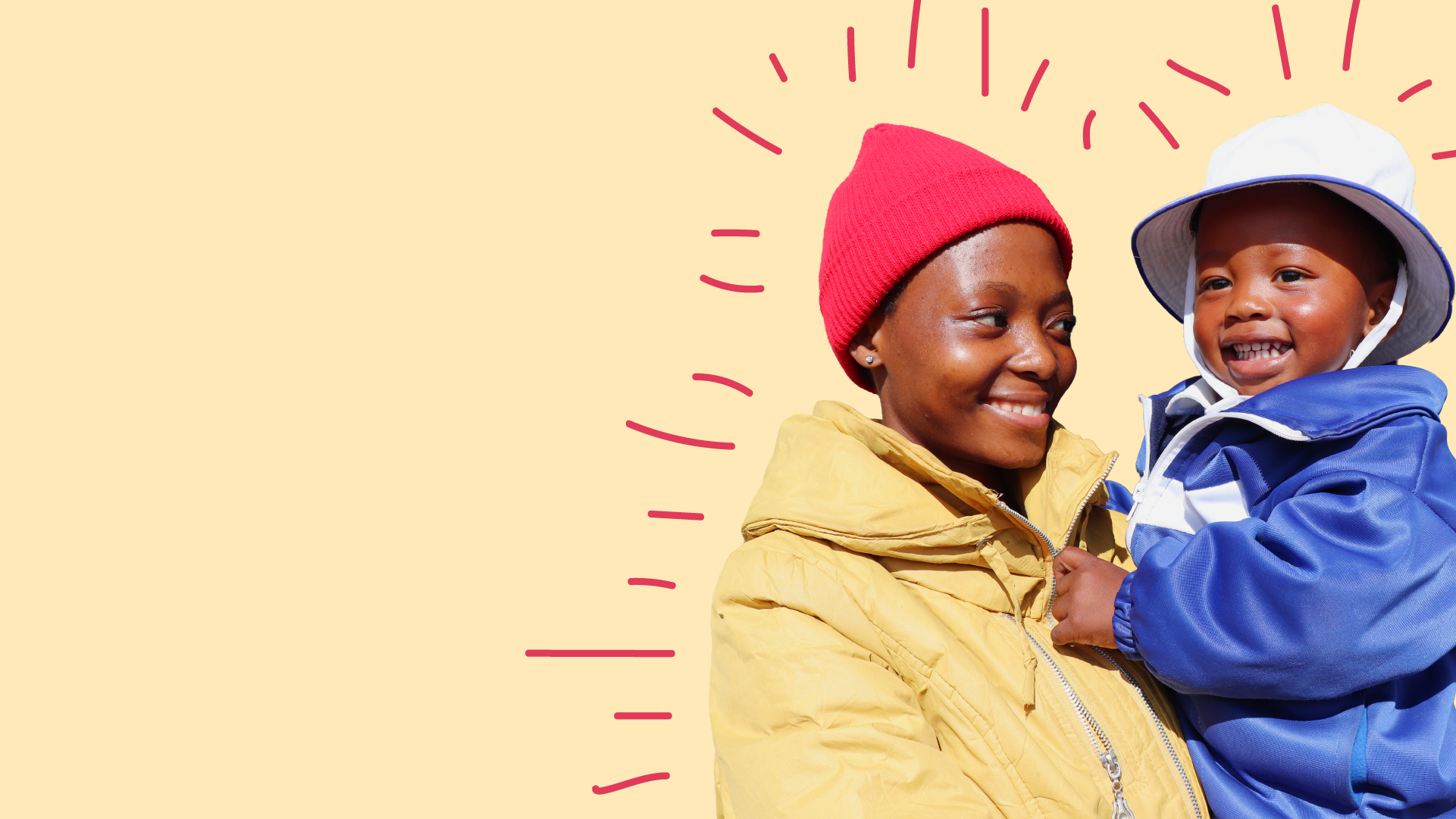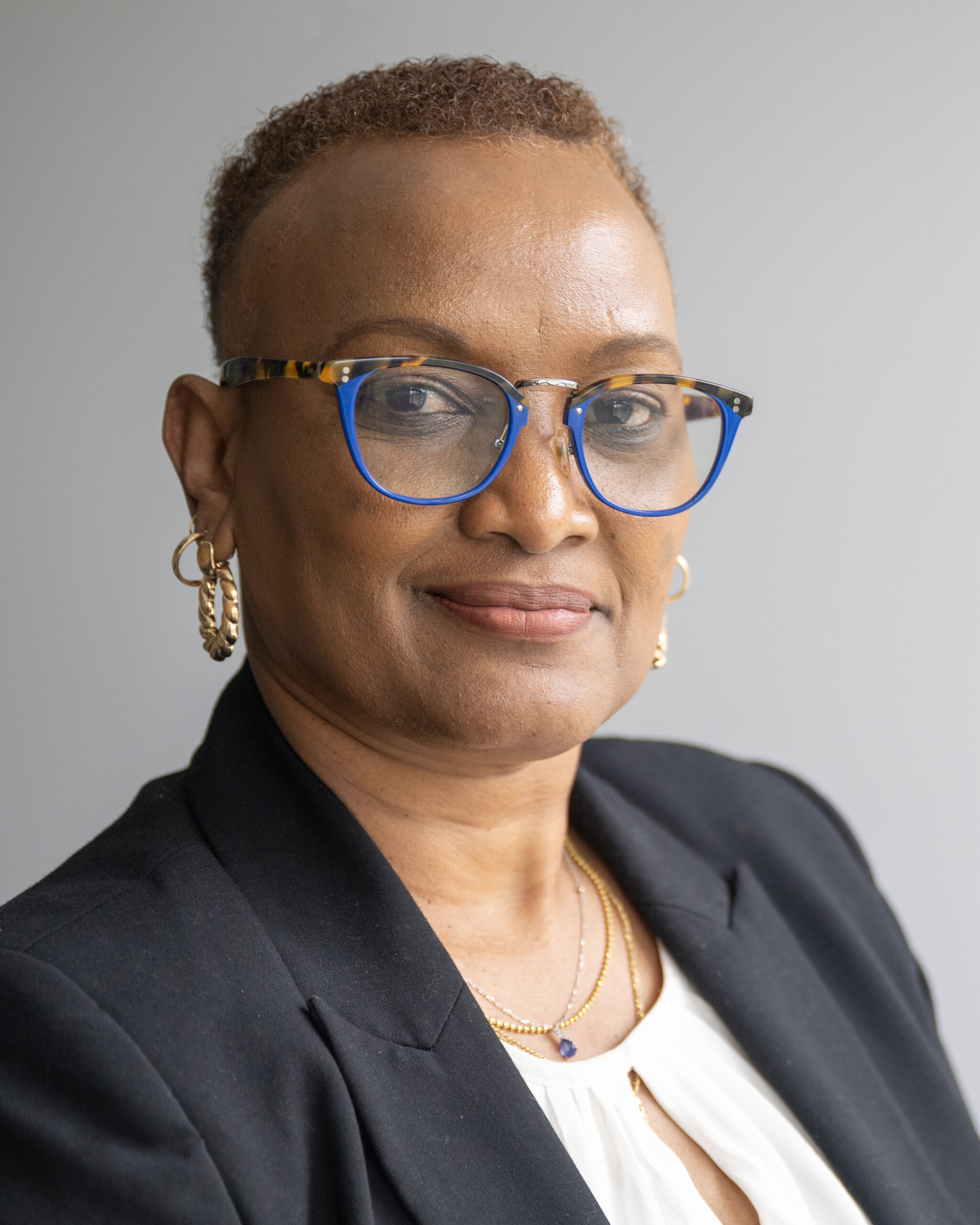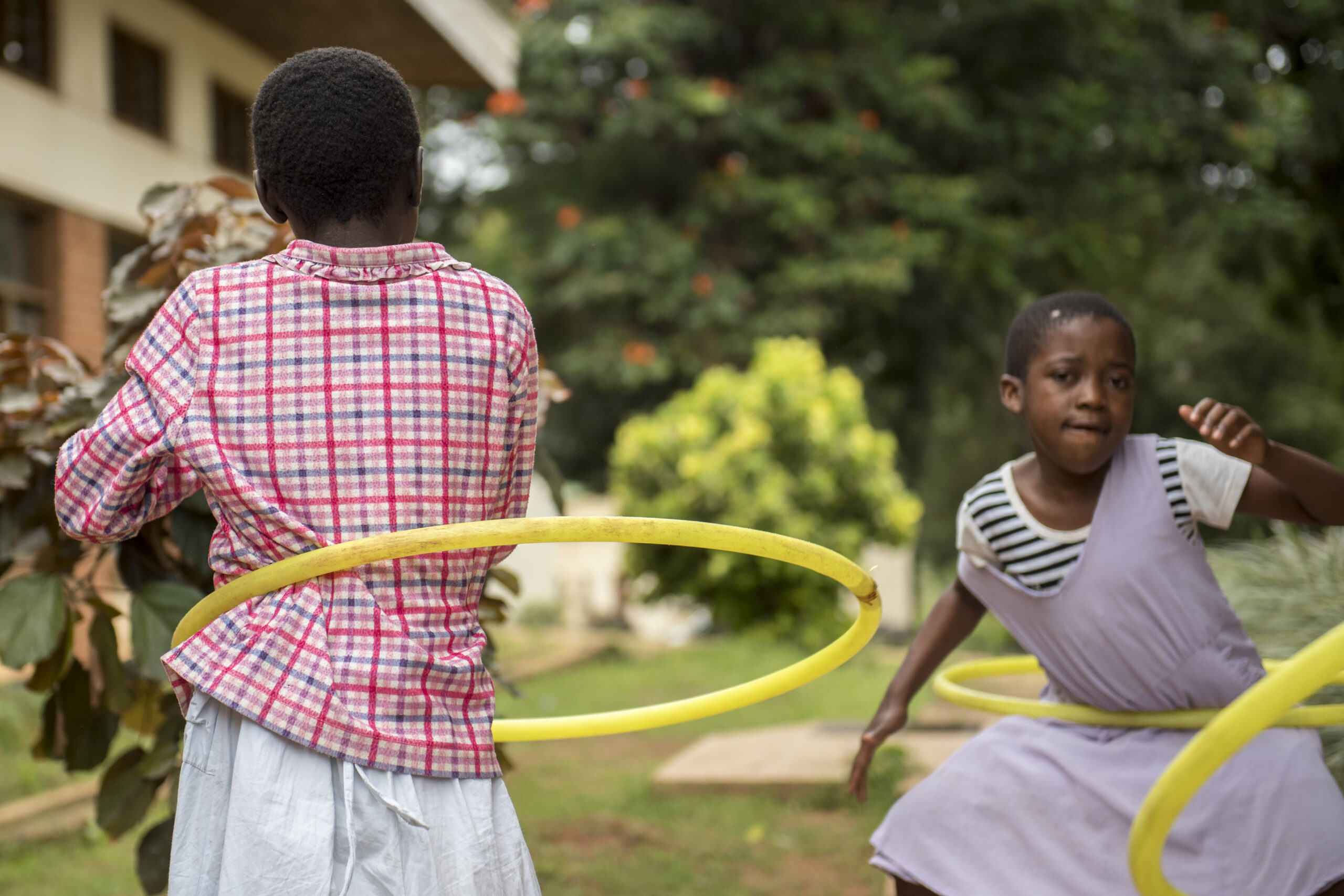I just got home after traveling for 37 hours from Kilimanjaro, Tanzania to Dallas, Texas. On our journey back , I had plenty of time to reflect on the 2018 Top Fundraiser Trip. It’s hard to put in words… as cliché as it might sound, it feels indescribable. But I’ll try my very best to share my experience with you all.
When we arrived at the Kilimanjaro International Airport on Saturday night, I was super giddy, and I couldn’t stop smiling.
I’ve wanted to go to Africa for as long as I can remember, and it felt surreal that I was finally there and that I had earned it.
Despite the jet lag the next morning, I was eager to start exploring. We enjoyed a lovely walking tour of Arusha and visited the Arusha Central Market and the Maasai Market. I was introduced to the beauty of Tanzanian culture and started to become acquainted with my surroundings.
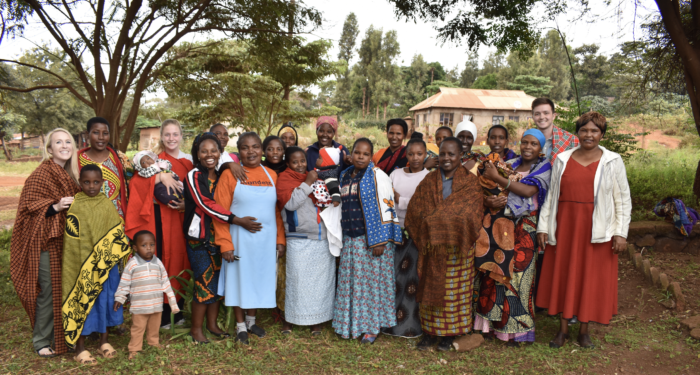
The next morning (Monday), we visited the local Elizabeth Glaser Pediatric AIDS Foundation office. The staff there gave a presentation about the work that EGPAF is doing in Tanzania, specifically Arusha. I was shocked to learn that, of the over 5,000 sites that EGPAF is present in, more that 2,400 of them are in Tanzania. I proceeded to explain why I was there and to tell a bit about the Pediatric AIDS Coalition and UCLA Dance Marathon. It was always amusing to see people’s reactions to the explanation of Dance Marathon. Though it seems normal to me, it’s a very foreign, strange concept to most.
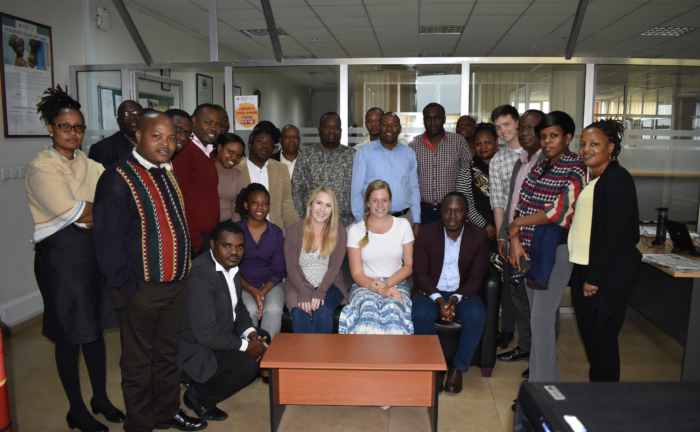
After our visit with EGPAF staff, we set off for our first site visit. It was a pleasure to meet the men and women who work so hard at strengthening the health care system in Tanzania.
Our first destination was the Mount Meru Regional Hospital where we met with an Ariel Club. About 20 boys and girls, ranging in age, introduced themselves. We were lucky enough to hear from Theresia, an 18-year-old girl, and Tumaini, a 23-year-old boy. They shared their inspiring stories with us and displayed strength and courage.
Our meeting with the group was concluded by a young boy that shared a rap that he wrote about his experience with HIV/AIDS. The lyrics were about staying committed to his health by taking their medicine and persisting in the face of hardship. This boy had found a coping mechanism in music and was eager to share his talent and his message with us and his peers.
Our next stop was the Meru District Hospital. Dr. Sango Wycliffe, the director of the HIV/AIDS program at the hospital, gave us a tour of the facilities and told us of his program’s successes and its future trajectory. The first group we met with at the Meru District Hospital was a group of young adults, none of which are infected by HIV. These men and women are called peer-educators, and they have taken a great initiative to educate their community members about HIV and to encourage their peers to have safe sex and to be tested for STIs.
It was incredible to see a group of young adults so dedicated to their own health and the health of their classmates and friends. It reminded me a lot of the work that the Pediatric AIDS Coalition does! I think that the peer-educators program is really great and could make a huge difference in the fight against HIV/AIDS if it were implemented in communities worldwide.
We also met with a mother-and-child support group at the Meru District Hospital. All of the children told us what they wanted to be when they grow up. Thanks to the work of organizations like EGPAF, HIV-positive kids can grow up to be teachers, doctors, soldiers, and parents.
When I shared a bit about the Dance Marathon program, a couple of the mothers were brought to tears. One of them explained that it’s hard for them to believe that people so far away care so much about people they’ve never met and will dance for 26 hours to make sure that they can get the treatment they need. It was then that I really realized the far-reaching effects of PAC’s work.
We made our last visit of the day to the Dream Center. Here, we met with a youth group. A little boy—maybe 8 years old—informed us of what HIV/AIDS is and the importance of his medication. It’s fantastic that at his age he is able to understand his condition and how crucial it is to take his drugs. The Dream Center clearly does a great job at educating all its clients, regardless of their age.
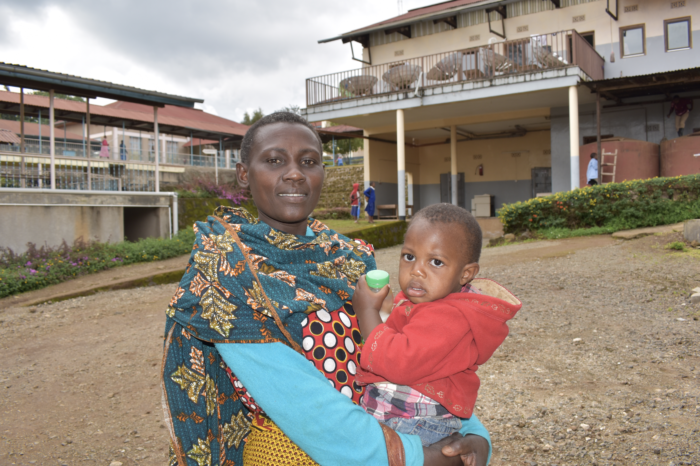
On Tuesday after a few additional site visits, we enjoyed a scenic drive in the mountains to reach the Kibosho Hospital. As we pulled up to the property, we were greeted by a group of toddlers singing and jumping around. Talk about a warm welcome!! The children led us to a meeting space where a group of mothers and infants were waiting for our arrival. Most of the people in this area are part of the Chagga Tribe, so the women led us in traditional Chagga song and dance. The room was filled with joy and love, and I couldn’t get enough of it. I was so happy to be there! The hospital staff told us about their programs, and the women shared how the hospital has impacted their experience as HIV-positive mothers. In return, we explained the work that groups like EGPAF and PAC are doing on their behalf. Once our conversation concluded, we all danced and laughed together; the language posed no barrier in that beautiful moment. We stayed nearly an extra hour just enjoying each other’s company. And I got to hold so many precious babies which warmed my heart!!
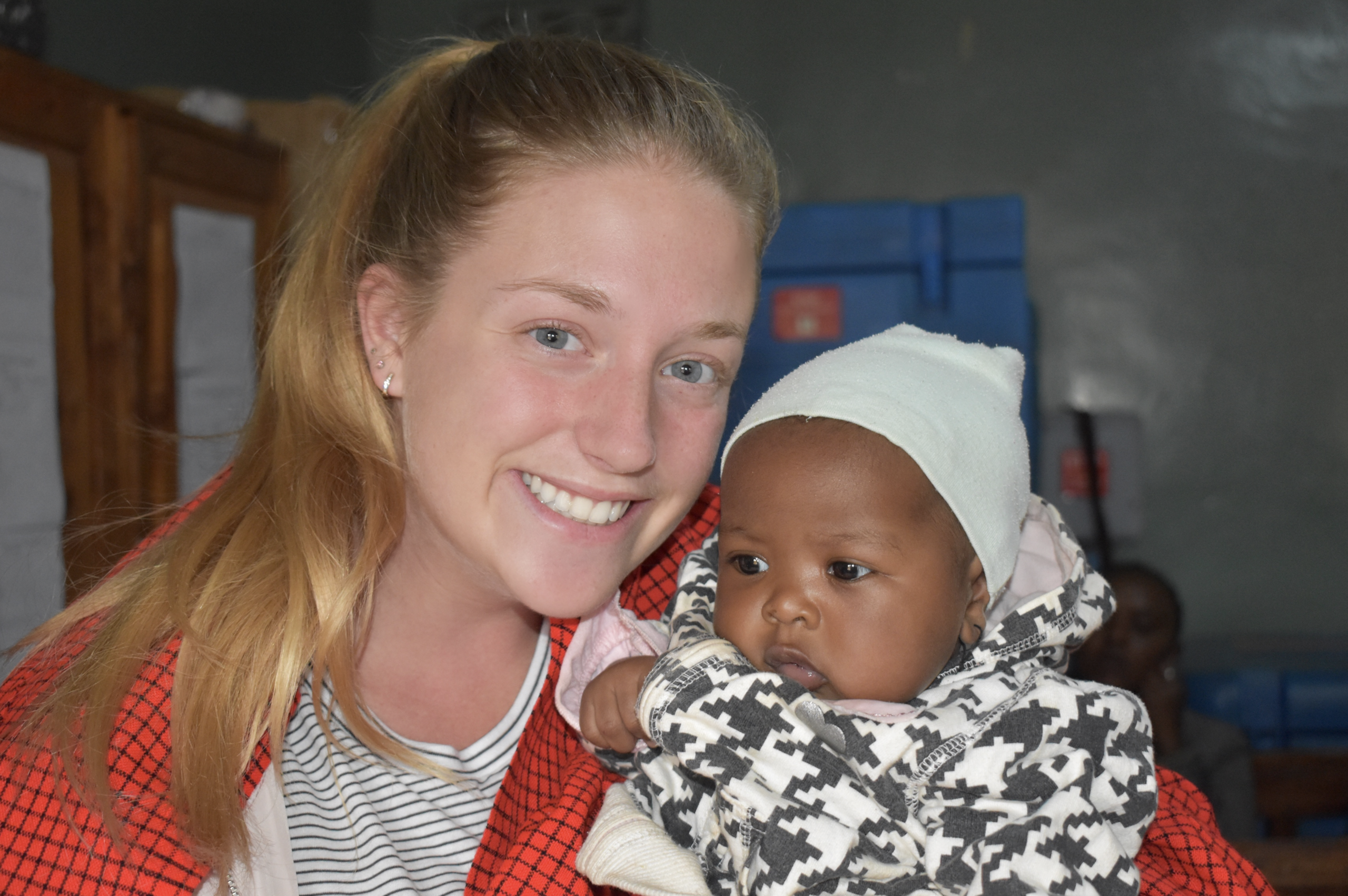
Our final day of site visits was in the district of Karatu, about a three-hour drive from Arusha. Following our routine courtesy calls to the RMO and DMO, we went to the Karatu Health Center and met with another mother support group. The group, comprised of twenty women, meet quarterly at the Center to refill their ARV prescriptions and to discuss issues such as low income, gender violence, stigma, responsibilities, etc. Each member contributes a small sum of money to an emergency fund that is used if a group member faces a serious conflict and needs help. Furthermore, they told us that they all hold each other accountable in taking their medicine. If, for example, one of them stops showing up to the group meetings, the other group members would visit her in her home to encourage her to persist with her treatment. The women at the Karatu Health Center have established an effective support system that offers love and motivation when/if the women lose their way.
In 2015, the Center tested 9,109 pregnant women for HIV and 101 of them turned out to be HIV-positive. In 2017, just two years later, the Center tested 8,601 pregnant women and 53 of them were HIV-positive. That’s 48 fewer women that are at risk of transmitting HIV to their babies. The work that these clinics are doing with the help of EGPAF is really changing the course of history. All the mothers that we heard from at the Kibosho Hospital and at the Karatu Health Center have been able to conceive and give birth to HIV-negative babies. It was amazing to hear real-life testimonies about the success of EGPAF’s work.
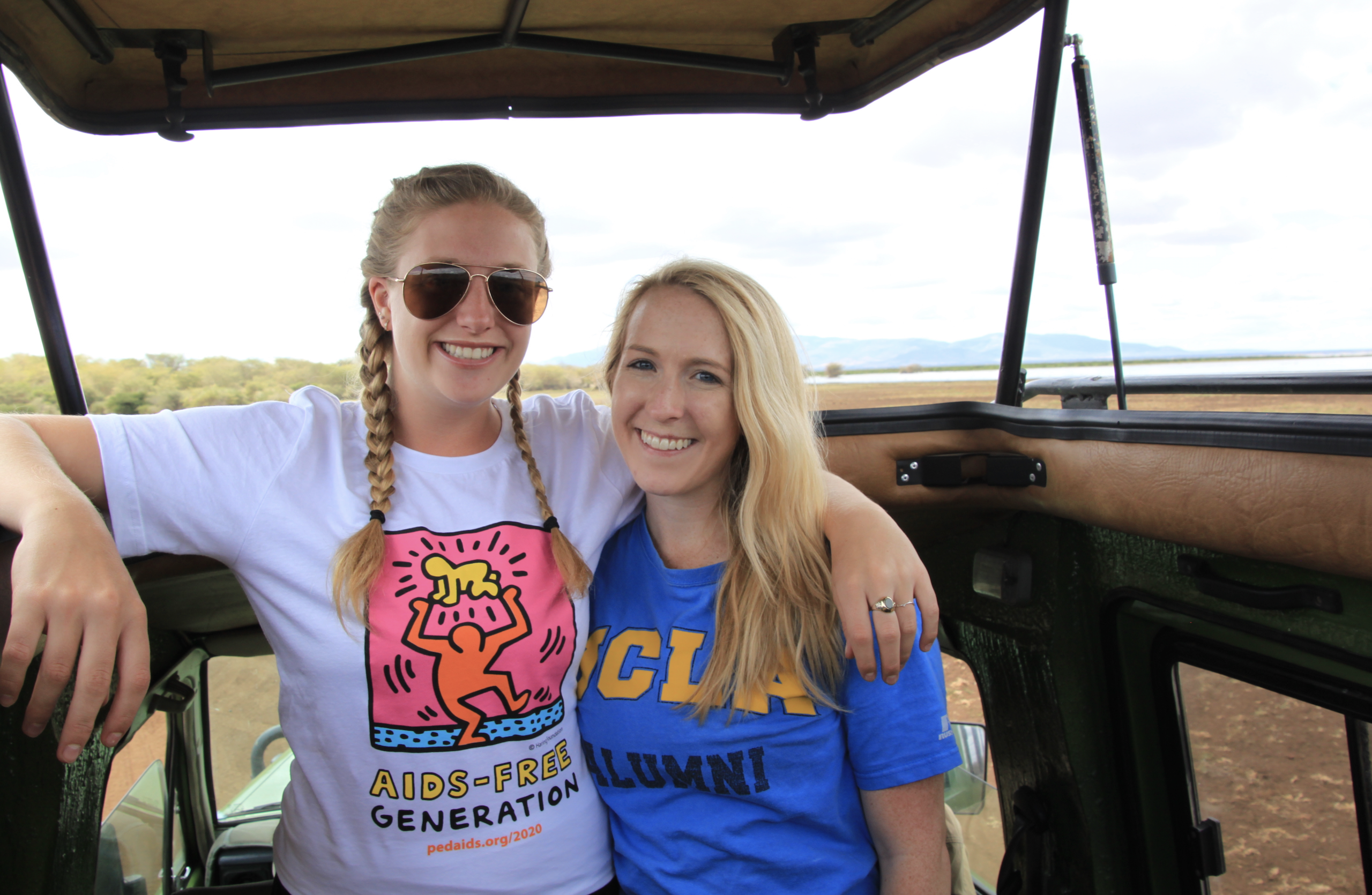
The second leg of our trip was spent on an African safari. The closest I had come to a safari was a rare trip to the Dallas Zoo. I love animals, and I was stoked to see them in their natural habitat. A six-hour drive on Thursday morning took us to the Serengeti National Park. Our safari guide, Limo, led us on a game drive throughout the savanna. We got to see a cheetah and a leopard, both of which are rare sightings, two female lions eating a wildebeest, and even an elephant in labor. I seriously felt like I was in The Lion King. That night, we camped out in the middle of the Serengeti and fell asleep to the sounds of hippos and hyenas roaming our campsite. Wild!! The safari was a very peaceful experience—I loved standing up in the Land Rover and letting the wind blow in my face and hair. We didn’t have phone service, so we enjoyed being disconnected and simply enjoying the silence and beauty of African wildlife.
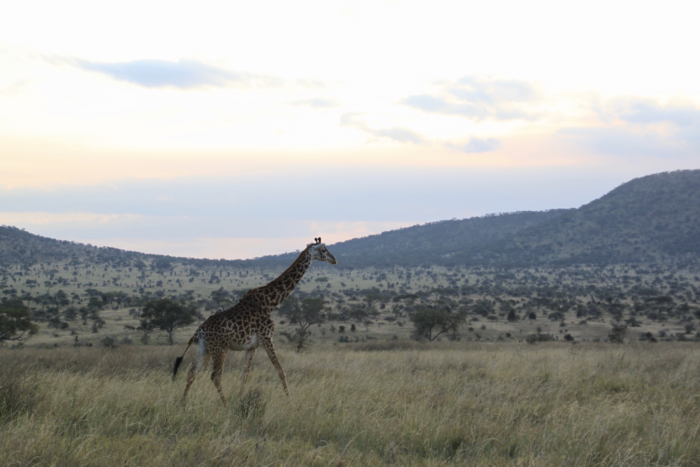
I cannot even begin to thank the Elizabeth Glaser Pediatric AIDS Foundation for allowing me this opportunity.
My trip to Africa was eye-opening and significantly broadened my perspective of the world. I learned so much from this trip: more about EGPAF and the work that they’re doing, about the workings of a nonprofit, about the experiences and challenges of HIV-positive men and women and children, about Tanzania and its people’s culture, and about myself and what I want to do in the future.
Our site visits brought me so much closer to PAC’s cause. I can’t wait to share these experiences with my peers at UCLA and to remind them that what we’re doing is making a tangible difference. I look forward to continuing my work with PAC and EGPAF and hopefully spending more time in Africa. Asante sana (thank you) for following along my journey!!


